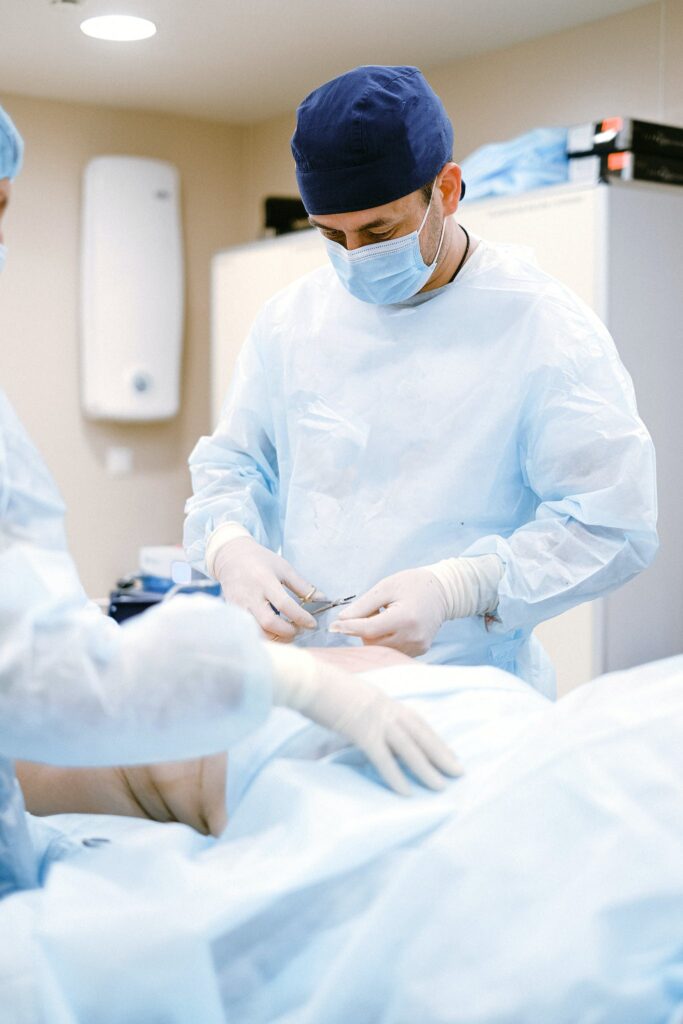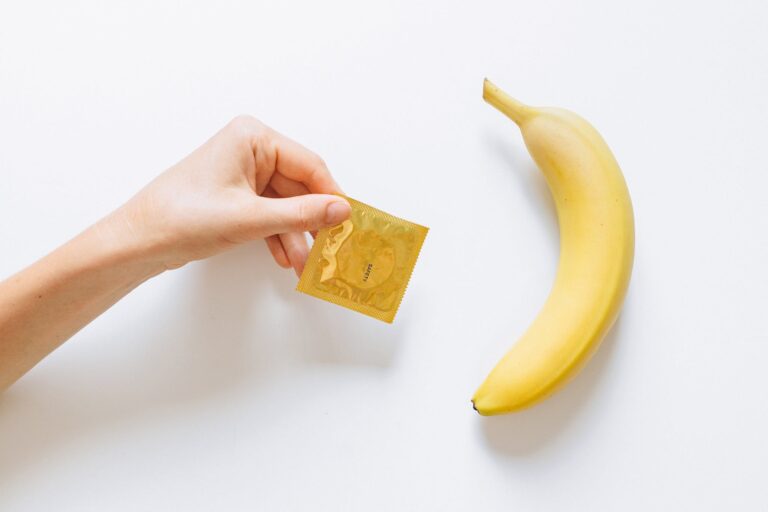Medical Interventions for Premature Ejaculation: What You Need to Know

Understanding Premature Ejaculation
Premature ejaculation is a common sexual disorder that affects many men around the world. It is characterized by the inability to control ejaculation, leading to ejaculation occurring earlier than desired during sexual activity. While occasional instances of premature ejaculation may not be a cause for concern, persistent and recurring episodes can have a significant impact on a man’s sexual satisfaction and overall well-being.
The exact cause of premature ejaculation is not fully understood, but it is likely to involve a combination of psychological, biological, and genetic factors. Research suggests that psychological factors such as performance anxiety, stress, and relationship issues can contribute to the development and maintenance of premature ejaculation. Additionally, certain biological factors such as abnormal levels of brain neurotransmitters, sensitivity of the nervous system, and hormonal imbalances may also play a role.
Understanding the factors that contribute to premature ejaculation is crucial in order to develop effective treatment strategies. By identifying the underlying causes, individuals and healthcare professionals can work together to develop a personalized plan that addresses both the physical and psychological aspects of premature ejaculation. This comprehensive approach is essential in order to help individuals regain control over their sexual experiences and improve their overall quality of life.
Causes and Risk Factors of Premature Ejaculation
Premature ejaculation is a common sexual concern that affects many men, causing distress and impacting their overall well-being. Understanding the causes and risk factors of premature ejaculation is crucial in order to effectively address and manage this condition.
One of the primary causes of premature ejaculation is believed to be psychological factors. Stress, anxiety, depression, and relationship issues can all contribute to the onset or worsening of premature ejaculation. These psychological factors can create a cycle of performance anxiety and fear of failure, further exacerbating the issue. Additionally, certain sexual behaviors, such as infrequent sexual activity or rushing through sexual encounters, can also contribute to the development of premature ejaculation.
In addition to psychological factors, there are also physiological and biological causes of premature ejaculation. Research has suggested that alterations in neurotransmitter levels, specifically serotonin, may play a role in the timing of ejaculation. Certain medical conditions such as prostate problems or thyroid abnormalities can also be associated with premature ejaculation. It is important to note that premature ejaculation is not solely caused by one factor, but rather a combination of several factors working together.
Understanding the risk factors for premature ejaculation is equally important in order to identify those individuals who may be more susceptible to experiencing this condition. Age is one common risk factor, as studies have shown that younger men are more likely to experience premature ejaculation compared to older men. Other risk factors include a history of sexual abuse, relationship problems, and certain medical conditions such as erectile dysfunction.
By gaining a better understanding of the causes and risk factors of premature ejaculation, individuals can work towards finding effective solutions and treatments that can help improve their sexual satisfaction and overall quality of life. It is important to seek professional support and guidance in addressing this concern, as healthcare professionals can provide personalized advice and treatment options tailored to each individual’s unique needs.
Psychological Approaches to Treating Premature Ejaculation
Psychological approaches are an important component of treating premature ejaculation (PE), as they address the underlying emotional and psychological factors that contribute to the condition. One commonly used approach is cognitive-behavioral therapy (CBT), which focuses on identifying and challenging negative thoughts and beliefs related to sexual performance.
CBT for PE typically involves a combination of cognitive restructuring, which helps individuals reframe their thoughts about performance and self-esteem, and behavioral techniques, such as the stop-start method or the squeeze technique. These techniques aim to reduce anxiety and increase control over ejaculation.
Another psychological approach used for PE is psychoeducation, which involves educating individuals about the normal sexual response cycle and providing information on strategies to manage and delay ejaculation. This approach can help individuals develop realistic expectations and reduce performance anxiety.
It is worth noting that psychological approaches may be used in conjunction with other treatment modalities, such as medications or lifestyle modifications, to optimize outcomes for individuals with PE. Seeking guidance from a qualified healthcare professional is essential to determine the best approach for each individual, as treatment plans should be tailored to specific needs and circumstances.
Behavioral Techniques for Managing Premature Ejaculation

Behavioral techniques can be a helpful approach in managing premature ejaculation. These techniques focus on modifying certain behaviors and habits that may contribute to the early release of semen during sexual activity. One common behavioral technique is called the “start-stop” method. This involves stopping sexual stimulation when the individual feels they are reaching the point of no return, and then waiting until the sensation subsides before continuing. By practicing this technique regularly, individuals can learn to better control their ejaculation and prolong the sexual experience.
Another behavioral technique is known as the “squeeze” method. This involves applying pressure to the base of the penis or the frenulum (the sensitive area below the head of the penis) during the moments leading up to ejaculation. This pressure helps to disrupt the build-up of sexual tension and can delay ejaculation. Similar to the start-stop method, the squeeze method can be practiced repeatedly to improve control over ejaculation.
It is important to note that behavioral techniques for managing premature ejaculation may require practice and patience to be effective. Each individual’s experience with premature ejaculation is unique, and what works for one person may not work for another. It is always advisable to consult with a healthcare professional or a qualified sex therapist who can provide personalized guidance and support in implementing these techniques.
Medications for Premature Ejaculation: How They Work
Premature ejaculation is a common condition that affects many men, causing distress and affecting their sexual relationships. Medications can be an effective treatment option for those struggling with premature ejaculation, but it’s important to understand how they work before considering this approach.
There are different types of medications available for treating premature ejaculation, and they work in different ways to address the underlying causes of the condition. One common type of medication is selective serotonin reuptake inhibitors (SSRIs), which are commonly used as antidepressants. SSRIs work by increasing the levels of serotonin in the brain, which can help to delay ejaculation. Another medication option is topical anesthetics such as lidocaine or benzocaine, which can be applied to the penis to reduce sensitivity and prolong intercourse.
It’s worth noting that while medications can be effective in managing premature ejaculation, they may also come with potential side effects. These can range from mild, such as nausea or headache, to more severe, such as decreased libido or erectile dysfunction. It’s important to discuss these potential side effects with your healthcare provider to ensure that the benefits of the medication outweigh any risks. Additionally, medications should only be used under the guidance of a healthcare professional to ensure proper dosage and usage. By understanding how medications for premature ejaculation work and discussing them with a healthcare provider, individuals can make an informed decision about their treatment options.
Commonly Prescribed Medications for Premature Ejaculation

Premature ejaculation is a common sexual issue that can greatly impact a person’s confidence and relationships. Fortunately, there are several medications available that can help manage this condition. Let’s take a closer look at some commonly prescribed medications for premature ejaculation.
One of the most commonly used medications for treating premature ejaculation is selective serotonin reuptake inhibitors (SSRIs). SSRIs are typically used as antidepressants, but they have also been found to prolong ejaculation time. These medications work by increasing the levels of serotonin in the brain, which can help delay ejaculation. Commonly prescribed SSRIs for premature ejaculation include sertraline, paroxetine, and fluoxetine.
Another medication that may be prescribed is topical anesthetics. These numbing agents, such as lidocaine or prilocaine, are applied directly to the penis to reduce sensitivity and delay ejaculation. They work by temporarily numbing the area, allowing the individual to maintain control and prolong intercourse.
It’s important to note that these medications may have potential side effects, such as drowsiness, nausea, or decreased libido. It is recommended to discuss with a healthcare professional to find the most suitable medication and dosage for individual needs. Additionally, it’s essential to remember that medication alone may not address the underlying causes of premature ejaculation, and a comprehensive approach that includes therapy or behavioral techniques may be necessary for long-term improvement.
Potential Side Effects of Medications for Premature Ejaculation
Potential side effects are an important consideration when using medications for the treatment of premature ejaculation. While these medications can be effective in delaying ejaculation, they may also come with certain risks and adverse effects. It is important to be aware of these possible side effects in order to make an informed decision about the best treatment approach.
Common side effects of medications for premature ejaculation include headaches, nausea, dizziness, and fatigue. These side effects are generally mild and temporary, and they tend to diminish over time as the body adjusts to the medication. However, in some cases, more serious side effects may occur, such as allergic reactions, changes in blood pressure, or sexual dysfunction. It is essential to monitor any changes in your body and report them to your healthcare provider promptly. While the occurrence of severe side effects is rare, it is crucial to be aware of the potential risks and to consult with your healthcare provider if you have any concerns.
Non-Medical Treatments for Premature Ejaculation
Premature ejaculation can significantly impact sexual satisfaction and relationships. While medications are commonly used to address this issue, there are also non-medical treatments that can be effective. One approach is psychotherapy, which can help identify and address underlying psychological factors contributing to premature ejaculation. Cognitive-behavioral therapy (CBT) is a specific type of psychotherapy that focuses on changing negative thought patterns and behaviors. It can help individuals develop strategies to manage anxiety and control ejaculation timing.
Behavioral techniques, such as the squeeze technique and the stop-start method, are also non-medical treatments for premature ejaculation. The squeeze technique involves applying pressure to the base of the penis when nearing ejaculation to delay climax. The stop-start method involves stopping sexual stimulation when nearing orgasm and then resuming once the urge to climax has subsided. These techniques can help individuals become more aware of their body’s sensations and gain better control over their ejaculation response.
It’s important to note that non-medical treatments may not be effective for everyone, and it may be necessary to combine them with other approaches, such as medication or lifestyle changes, for optimal results. Consulting with a healthcare professional is crucial in determining the most appropriate treatment plan for each individual.
The Role of Psychotherapy in Managing Premature Ejaculation
Psychotherapy, also known as talk therapy, plays a crucial role in managing premature ejaculation by addressing the underlying psychological factors that contribute to this condition. Premature ejaculation can often be linked to stress, anxiety, performance pressure, relationship issues, or past sexual trauma. Through psychotherapy, individuals are provided with a safe and supportive environment to explore and understand the root causes of their premature ejaculation.

One commonly used psychotherapy approach is cognitive-behavioral therapy (CBT). CBT aims to identify and challenge negative thoughts, beliefs, and behaviors that may contribute to premature ejaculation. By replacing these negative patterns with more positive and realistic ones, individuals can develop healthier coping strategies and enhance their sexual experiences. CBT may involve techniques such as relaxation exercises, desensitization, and communication skills training.
In addition to CBT, other forms of psychotherapy may be beneficial. For example, psychodynamic therapy focuses on exploring unconscious thoughts and emotions that may be influencing one’s sexual functioning. Couples therapy can be particularly helpful for addressing relationship dynamics and improving sexual intimacy. It allows partners to openly communicate and work together towards finding solutions that satisfy both individuals’ needs.
It is important to note that psychotherapy is a gradual process and may require multiple sessions to achieve the desired results. However, the benefits can extend beyond managing premature ejaculation, positively impacting overall sexual well-being and quality of life. By seeking the guidance of a qualified therapist, individuals with premature ejaculation can gain valuable insights and develop the necessary skills to overcome this challenge.
Lifestyle Changes to Improve Premature Ejaculation Symptoms
Lifestyle changes can play an important role in managing premature ejaculation symptoms. While there is no one-size-fits-all approach, making certain adjustments to your daily routine and habits may help improve your sexual experience. One important lifestyle change to consider is maintaining a healthy diet. Studies have shown that certain nutrients, such as zinc, magnesium, and vitamin E, can have a positive impact on sexual function. Including foods like lean meats, fruits, vegetables, whole grains, and nuts in your diet can help provide these essential nutrients. Additionally, avoiding excessive alcohol consumption and quitting smoking can also help improve your sexual health. These lifestyle changes can enhance overall well-being and may positively affect your ability to manage premature ejaculation.
In addition to dietary adjustments, regular exercise can have significant benefits for men dealing with premature ejaculation. Engaging in physical activity on a regular basis not only improves cardiovascular health but also helps reduce stress and anxiety, both of which can contribute to premature ejaculation. Exercise promotes the release of endorphins, which are known as “feel-good” hormones that can help alleviate stress and improve mood. Incorporating activities like jogging, swimming, yoga, or weightlifting into your routine can be beneficial in managing premature ejaculation. It is important to consult with a healthcare professional before starting any new exercise program to ensure it is safe and appropriate for your individual needs.
Alternative Therapies for Premature Ejaculation
Alternative therapies can be a promising avenue for individuals seeking additional options to manage premature ejaculation. While more research is needed to establish their effectiveness, these therapies offer potential benefits for those who may be hesitant to pursue traditional medical treatments or are looking for complementary approaches. Various alternative therapies have been explored, including acupuncture, herbal supplements, yoga, and pelvic floor exercises.
Acupuncture, an ancient Chinese practice, involves the insertion of thin needles at specific points on the body. Some studies have suggested that acupuncture may help with premature ejaculation by improving overall sexual function and reducing anxiety. However, the evidence is limited, and further research is necessary to fully understand its potential effects.
Herbal supplements, such as ginkgo biloba and Tribulus terrestris, have also been investigated as alternative treatments for premature ejaculation. These supplements are thought to increase blood flow and improve sexual function. However, much like acupuncture, the evidence supporting their effectiveness is limited, and proper dosages and safety profiles are still being explored.
Yoga, a mind-body practice that combines physical postures, breathing exercises, and meditation, may also have potential benefits for individuals with premature ejaculation. Practicing yoga has been linked to reduced stress, increased relaxation, and improved control over bodily functions. While more research is needed to establish a clear connection between yoga and premature ejaculation, incorporating yoga into one’s routine may offer a holistic approach to managing this condition.
Additionally, pelvic floor exercises, also known as Kegel exercises, have been suggested as a non-invasive alternative therapy for premature ejaculation. These exercises involve contracting and relaxing the muscles of the pelvic floor, which can potentially improve ejaculatory control. Some research has shown promising results, indicating that regular and targeted pelvic floor exercises may lead to enhanced ejaculatory latency and sexual satisfaction. However, further studies are needed to validate these findings and determine the optimal exercise routine for individuals with premature ejaculation.
It is important to note that while these alternative therapies may hold promise, it is recommended to consult with a healthcare professional before pursuing them. They can provide personalized guidance, assess potential risks and benefits, and ensure that any alternative therapies are integrated safely and effectively into an individual’s treatment plan.
Surgical Options for Treating Premature Ejaculation

Surgical options for treating premature ejaculation may be considered in cases where other treatments have been unsuccessful or if there is a specific anatomical issue contributing to the problem. One surgical option is a procedure called penile frenuloplasty, which involves releasing the frenulum, a band of tissue on the underside of the penis that connects the glans to the shaft. This can help to reduce penile sensitivity and improve ejaculatory control.
Another surgical option is dorsal neurectomy, which involves cutting or removing certain nerves in the penis to decrease sensitivity and delay ejaculation. This procedure is generally reserved for severe cases of premature ejaculation that have not responded to other treatments. It is important to note that these surgical options are not without risks and potential complications, and should only be considered after a thorough evaluation and discussion with a healthcare professional.
Overall, surgical options for treating premature ejaculation are considered to be a last resort and are typically only recommended in very specific cases. It is important to consult with a healthcare professional who specializes in sexual health to determine the most appropriate treatment approach for your individual situation.
Discussing Premature Ejaculation with your Partner
Premature ejaculation can be a difficult topic to discuss with your partner, but open communication is crucial for healthy sexual relationships. Initiating a conversation about this issue can help improve understanding, reduce anxiety, and ultimately lead to finding effective solutions together.
When broaching the subject, it’s important to create a safe and non-judgmental environment. Choose an appropriate setting where you both feel comfortable and ensure that you have privacy. Approach the conversation with empathy and understanding, acknowledging that premature ejaculation is a common concern that affects many individuals. Highlight the fact that it is not something to be ashamed of and emphasize that seeking help is a positive step towards improving intimacy and overall relationship satisfaction.
Consider using “I” statements to express your feelings and concerns. For example, you could say, “I’ve noticed that sometimes our sexual experiences end sooner than I would like, and it leaves me feeling unsatisfied. I wanted to talk about it because I care about our connection and think we can work together to find solutions.” By framing the discussion in this way, you can avoid placing blame on your partner and instead encourage them to be supportive and engaged in finding solutions.
Seeking Professional Help for Premature Ejaculation
When dealing with premature ejaculation, seeking professional help can be a beneficial step towards finding effective solutions. A healthcare professional, such as a urologist or a sex therapist, can provide valuable guidance and support in managing this condition. They have the expertise and experience to evaluate your specific situation, identify the underlying causes, and recommend appropriate treatment options.
Professional help for premature ejaculation typically involves a comprehensive assessment to determine the factors contributing to the issue. This may include a medical history review, physical examination, and possibly laboratory tests to rule out any underlying health conditions. In addition, the healthcare professional may ask detailed questions about your sexual experiences, relationship dynamics, and psychological factors that could be influencing your ejaculatory function. By conducting a thorough evaluation, they will be able to develop a personalized treatment plan tailored to your needs. Whether it involves behavioral techniques, medications, or a combination of approaches, the goal is to improve your sexual experience and overall satisfaction.
By seeking professional help, individuals with premature ejaculation can gain a better understanding of their condition and receive appropriate guidance to address it effectively. Understanding the causes, risk factors, and potential treatment options can empower individuals to take control of their sexual health and enhance their overall well-being. It is crucial to remember that healthcare professionals are trained to handle sensitive topics with care and confidentiality, ensuring a safe and supportive environment for discussing and resolving these concerns. Don’t hesitate to reach out and seek the expertise of a professional who can help you navigate through this common sexual issue.
Future Directions in Premature Ejaculation Research
In recent years, significant strides have been made in the field of premature ejaculation research. Scientists and healthcare professionals are continuously striving to better understand the underlying causes, risk factors, and effective treatment options for this common sexual disorder. As we delve into the future directions of premature ejaculation research, it is clear that there are several key areas that warrant further investigation and exploration.
One promising avenue of research is the development of novel medications specifically targeted at addressing premature ejaculation. While selective serotonin reuptake inhibitors (SSRIs) have shown efficacy in delaying ejaculation, they are not without their limitations and side effects. Therefore, researchers are actively working on finding alternative pharmacological approaches that may offer improved outcomes and fewer adverse reactions. By studying the intricate mechanisms involved in the process of ejaculation, scientists aim to identify new drug targets and develop medications that can modulate these pathways effectively.
Additionally, the role of psychological factors in premature ejaculation is an area that requires more in-depth examination. While it is well-established that psychological factors, such as anxiety, stress, and performance anxiety, can contribute to the condition, further research is needed to develop more tailored psychotherapeutic approaches. By understanding the underlying psychological mechanisms involved in premature ejaculation, psychologists and therapists can develop innovative interventions and techniques that address the unique needs of individuals experiencing this sexual concern. Such future research endeavors may help pave the way for more effective psychological management strategies and improved overall outcomes for those affected by premature ejaculation.
What are some potential future directions in premature ejaculation research?
Future directions in premature ejaculation research may involve investigating the effectiveness of new medications, exploring innovative behavioral techniques, and studying the impact of lifestyle changes on managing premature ejaculation symptoms.
Can premature ejaculation be caused by physical factors?
Yes, premature ejaculation can be caused by physical factors such as abnormal hormone levels, prostate inflammation, or genetic predisposition. Identifying and addressing these underlying physical causes may help in managing premature ejaculation.
Are there any non-medical treatments for premature ejaculation?
Yes, there are non-medical treatments for premature ejaculation, including psychological approaches such as cognitive-behavioral therapy, counseling, and sex therapy. These therapies aim to address the psychological aspects contributing to premature ejaculation.
How can psychotherapy help in managing premature ejaculation?
Psychotherapy can help in managing premature ejaculation by addressing underlying psychological issues, such as performance anxiety, relationship problems, or stress. Therapists can provide guidance, support, and techniques to help individuals overcome these challenges.
What lifestyle changes can improve premature ejaculation symptoms?
Lifestyle changes that may help improve premature ejaculation symptoms include regular exercise, stress management techniques, maintaining a healthy diet, getting enough sleep, and avoiding excessive alcohol or drug use.
Are there alternative therapies for premature ejaculation?
Yes, some alternative therapies such as acupuncture, herbal supplements, or yoga have been suggested for managing premature ejaculation. However, their effectiveness is not yet well-supported by scientific research.
Can surgical options be considered for treating premature ejaculation?
In some cases, surgical options such as selective dorsal neurectomy or penile implants may be considered for treating severe and treatment-resistant premature ejaculation. However, these procedures are typically reserved for rare cases and should be discussed with a healthcare professional.
How should one discuss premature ejaculation with their partner?
It is important to approach the topic of premature ejaculation with empathy, openness, and honesty. Initiate a calm and non-judgmental conversation, focusing on the impact it has on both partners and expressing a willingness to work together to find solutions.
When should professional help be sought for premature ejaculation?
Professional help should be sought for premature ejaculation if it causes distress, affects the quality of relationships, or if self-help techniques have not been effective. A healthcare professional or a sex therapist can provide guidance and appropriate treatment options.
Is premature ejaculation a permanent condition?
Premature ejaculation is not necessarily a permanent condition. With appropriate treatment and management techniques, many individuals are able to improve their control over ejaculation and overcome premature ejaculation symptoms.







